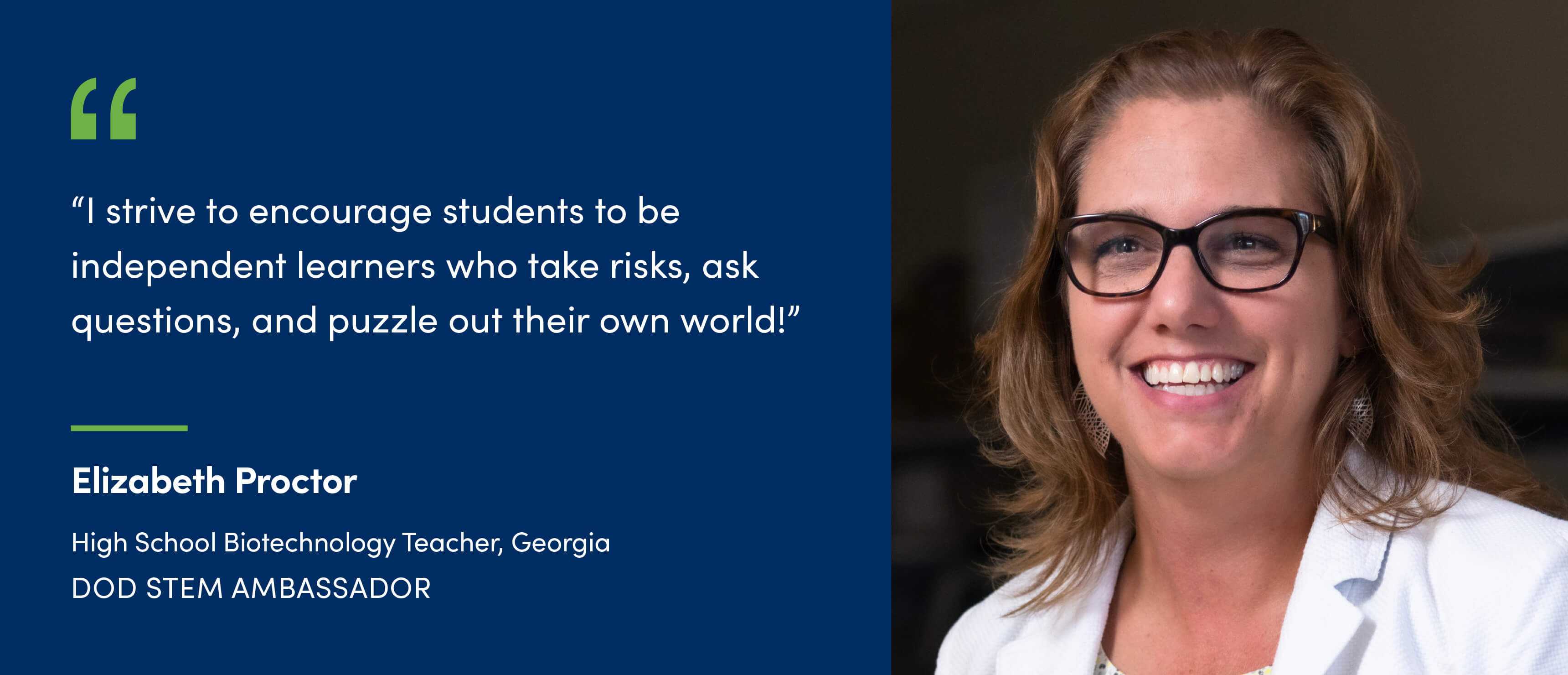If you were to take a survey about future career aspirations of the typical young person, you’d probably find a majority aspire to be lawyers, astronauts, professional athletes, teachers, racecar drivers, medical professionals and, perhaps, the president. As a science teacher, I like to imagine a different world and encourage future adults to dream about contributing to biomedical research and innovations. I’ve found that most young students are limited by their own world view. If they don’t know any research scientists or lab technicians personally or are not exposed to them in their day-to-day lives, they rarely mention these professions when asked what they want to be when they grow up.
The reality is that the wide-ranging biotechnology industry is growing exponentially worldwide and is ravenous for a qualified workforce. To even have a chance of filling these jobs, we need to introduce the myriad ways biotechnology impacts our lives early and often to young students. By sharing strategic mini introductions to biotech, students would have the experiences and skills needed to visualize and dream about a career in biotechnology research as well as other biomedical technical careers.
It’s pretty common to see scientists use pipettes and laminar flow hoods in the media. When students are given the opportunity to participate in these types of activities, they often say they are doing “stuff” they have seen actors doing in labs on TV. Simple extractions, separations and pipetting techniques are easily recognized and a perfect example of how biotech can be useful and even exciting. Especially when it solves a crime.
Following are some biotech tools and activities elementary school students should become more familiar with: pipette, centrifuge, extracting DNA, performing chromatography and utilizing microscopes. Extracting the snotty DNA from a strawberry is an exploration example young students appreciate. Extending the lesson by magnifying the strawberry could be a fruitful way for students to discover a love of microscopy. Children are infinitely curious. After learning a few basic skills, young students are equipped to explore and expand their own worldview with an eye toward scientific investigation.
Although these types of skills are fundamental, traditionally they are only taught to students in higher grades. Less time would be needed to build basic biotech skills in high school if students were taught the fundamentals in elementary school. With the basics second nature to students by the time they reach high school and/or college, they could fast-track their learning to focus on content knowledge and be well situated to learn advanced biotech laboratory skills. And when combined with science fair projects using authentic investigation, the results can be powerful and create independent learners who have confidence in their own inquiry.
** Action Steps for Teachers: **
- Introduce the word biotech in elementary school
- Classify appropriate science experiments as biotech; if it is biotech, call it biotech
- Showcase biotech careers
- Teach simple biotech skills
** Cheap and Safe Biotech Lab Ideas: **
- Centrifugal force with DIY paper spinners (made with cardstock, string and scissors)
- Foldable microscopes
- Chromatography paper and ink
- Strawberry or wheat germ DNA extraction
- Straw pipetting on wax paper with colored water (using a straw, design art with colored dots on wax paper)
A quick Google search will provide many examples of the ideas listed above. By preparing, equipping and supporting students with biotechnology fundamentals as standard lab skills, we are exposing, exciting and inspiring them with new career mindsets. Lab coats do come in ALL sizes!
ABOUT ELIZABETH PROCTOR
In addition to teaching biotechnology in high school, Elizabeth Proctor is a Georgia Bio Master Biotechnology teacher who trains teachers in the field. She has been recognized with numerous awards, most recently the Georgia Bio Biotechnology Teacher of the Year and Georgia Junior Science & Humanities Symposium Teacher Award. Elizabeth holds a master’s in education from Troy University and a Teacher Leadership Specialist Degree from Georgia College. She has spent many years as a Lead Advocate with Society for Science where she works with teachers to promote scientific research for students who are low income or underrepresented in science research competitions. A Bio-Rad Fellow, Elizabeth is trained to use Bio-Rad labs and has participated in virtual CRISPR lab training.
ABOUT DOD STEM AMBASSADORS
The DoD STEM Ambassador Program awards $20,000 annually to educators selected through a national search. The DoD STEM Ambassadors work together to curate learning materials and creative engagement approaches that will help cultivate the next generation of STEM professionals. The educators, and by design their students, parents, and networks will be exposed to the wealth of STEM-centric education, outreach, and workforce opportunities available throughout the DoD.
ABOUT SOCIETY FOR SCIENCE
Based in Washington, DC, the Society for Science (Society) has been a champion for science since 1921, dedicated to expanding scientific literacy, effective STEM education, and scientific research. The Society is known for award-winning journalism, world class science research competitions, and outreach and equity programming.
Learn more about Society for Science Advocate Program: https://www.societyforscience.org/outreach-and-equity/advocate-program
